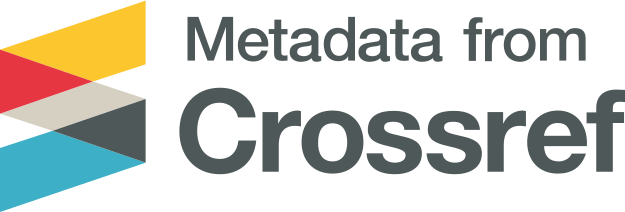Determinan Kepatuhan dan Penerimaan PPh Badan Pada Kantor Wilayah Direktorat Jenderal Pajak Jakarta Timur
Abstract views: 740 | PDF downloads: 606
Abstract
ABSTRACT
Taxpayer compliance is the most important part of tax revenue. In compliance there is formal and material compliance. Formal compliance is the compliance of taxpayers in depositing and reporting their tax obligations on time, while material compliance is compliance with the correctness of the contents of the reporting itself in the form of income received, costs incurred, taxes withheld / collected by other parties, up to taxes that still have to be paid. after carrying out various conversion mechanisms according to the applicable regulations. This research aims to determine how the relationship between tax policy socialization, taxpayer supervision, tax audit and tax collection on taxpayer compliance and corporate income tax receipts when mediated by taxpayer compliance. In this study, secondary data sources were taken from 9 (nine) Tax Service Offices (KPP) in the East Jakarta Regional Tax Office. In the form of target and realization data for the period 2014 to 2018 on 4 (four) activity instruments (socialization, supervision, inspection and collection) carried out at the Directorate General of Taxes. The results showed that tax policy socialization and taxpayer supervision had a significant effect on compliance, while tax audit and tax collection had no significant effect. For the effect on corporate income tax revenue through taxpayer compliance, tax policy socialization, taxpayer supervision has a significant negative effect, while tax audit and tax collection have a significant positive effect. For researchers who want to take the same theme as this research, they can develop it with the addition of independent variables and a longer research year in order to obtain results that better reflect the actual conditions.
ABSTRAK
Kepatuhan wajib pajak merupakan bagian terpenting dalam penerimaan pajak. Didalam kepatuhan terdapat kepatuhan formal dan material. Kepatuhan formal merupakan kepatuhan wajib pajak dalam menyetorkan dan melaporkan kewajiban perpajakannya tepat waktu sedangkan kepatuhan material adalah kepatuhan terkait kebenaran isi dari pelaporan itu sendiri berupa penghasilan yang diterima, biaya yang dikeluarkan, pajak yang dipotong/dipungut oleh pihak lain sampai dengan pajak yang masih harus dibayarkan setelah dilakukan berbagai mekanisme konversi sesuai aturan yang berlaku. Riset ini bertujuan untuk mengetahui bagaimana hubungan sosialisasi kebijakan pajak, pengawasan wajib pajak, pemeriksaan pajak dan penagihan pajak terhadap kepatuhan wajib pajak dan penerimaan PPh Badan saat dimediasi oleh kepatuhan wajib pajak. Dalam penelitian ini sumber data sekunder diambildari 9 (sembilan) Kantor Pelayanan Pajak (KPP) di lingkungan Kantor Wilayah DJP Jakarta Timur. Berupa data target dan realisasi selama periode 2014 sampai dengan 2018 atas 4 (empat) instrumen kegiatan (sosialisasi, pengawasan, pemeriksaan dan penagihan) yang dilakukan di Direktorat Jenderal Pajak. Hasil penelitian menunjukkan sosialisasi kebijakan pajak dan pengawasan wajib pajak berpengaruh signifikan terhadap kepatuhan sedangkan pemeriksaan pajak dan penagihan pajak tidak berpengaruh signifikan. Untuk pengaruh terhadap penerimaan PPh Badan melalui kepatuhan wajib pajak, sosialisasi kebijakan pajak, pengawasan wajib pajak berpengaruh signifikan negatif sedangkan pemeriksaan pajak dan penagihan pajak berpengaruh signifikan positif. Untuk peneliti yang ingin mengambil tema yang sama dengan penelitian ini dapat mengembangkan dengan penambahan variabel bebas dan tahun penelitian yang lebih panjang sehingga didapat hasil yang lebih mencerminkan kondisi sebenarnya.
JEL Classification : H20, H32
Copyright (c) 2020 Wieldy Menanda, Darmansyah Darmansyah, JMV Mulyadi, Nurmala Ahmar

This work is licensed under a Creative Commons Attribution-ShareAlike 4.0 International License.
Authors who publish with this journal agree to the following terms:
- Authors retain copyright and grant the journal right of first publication with the work simultaneously licensed under a Creative Commons Attribution-ShareAlike 4.0 International License that allows others to share the work with an acknowledgement of the works authorship and initial publication in this journal.
- Authors are able to enter into separate, additional contractual arrangements for the non-exclusive distribution of the journals published version of the work (e.g., post it to an institutional repository or publish it in a book), with an acknowledgement of its initial publication in this journal.
- Authors are permitted and encouraged to post their work online (e.g., in institutional repositories or on their website) prior to and during the submission process, as it can lead to productive exchanges, as well as earlier and greater citation of published work (See The Effect of Open Access).














